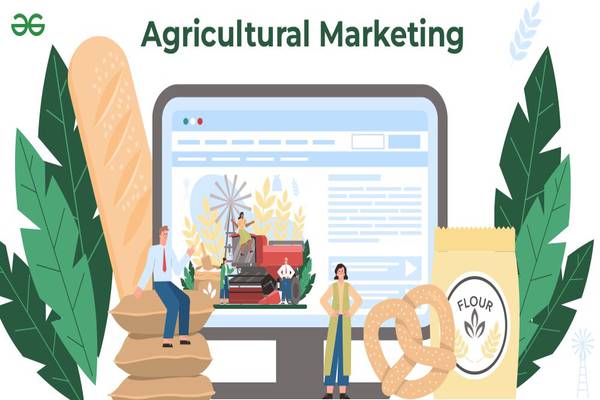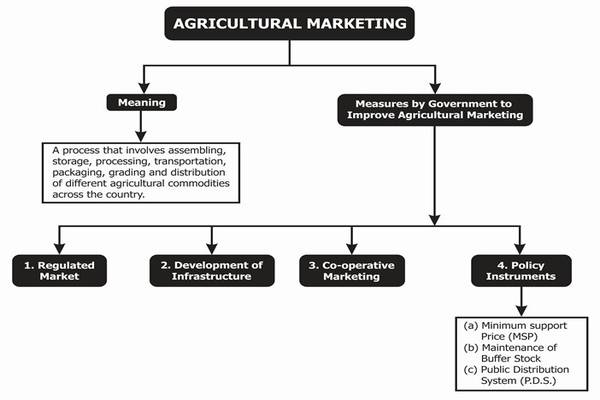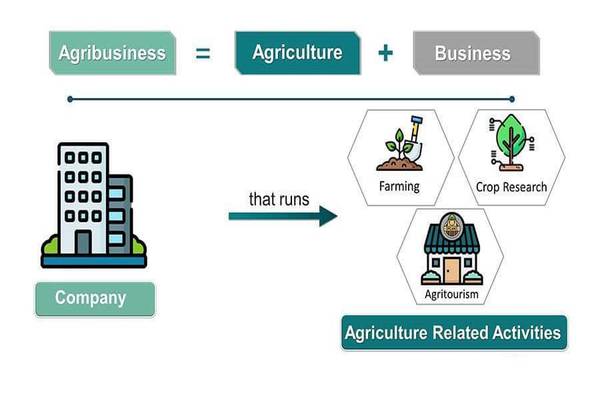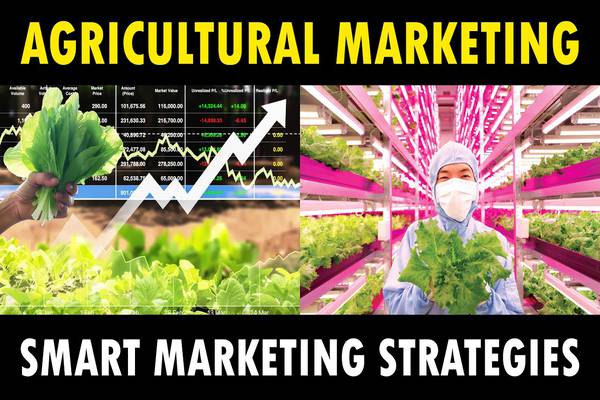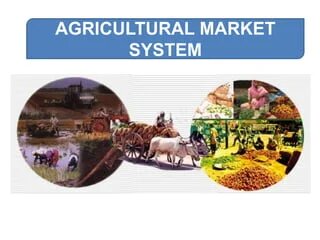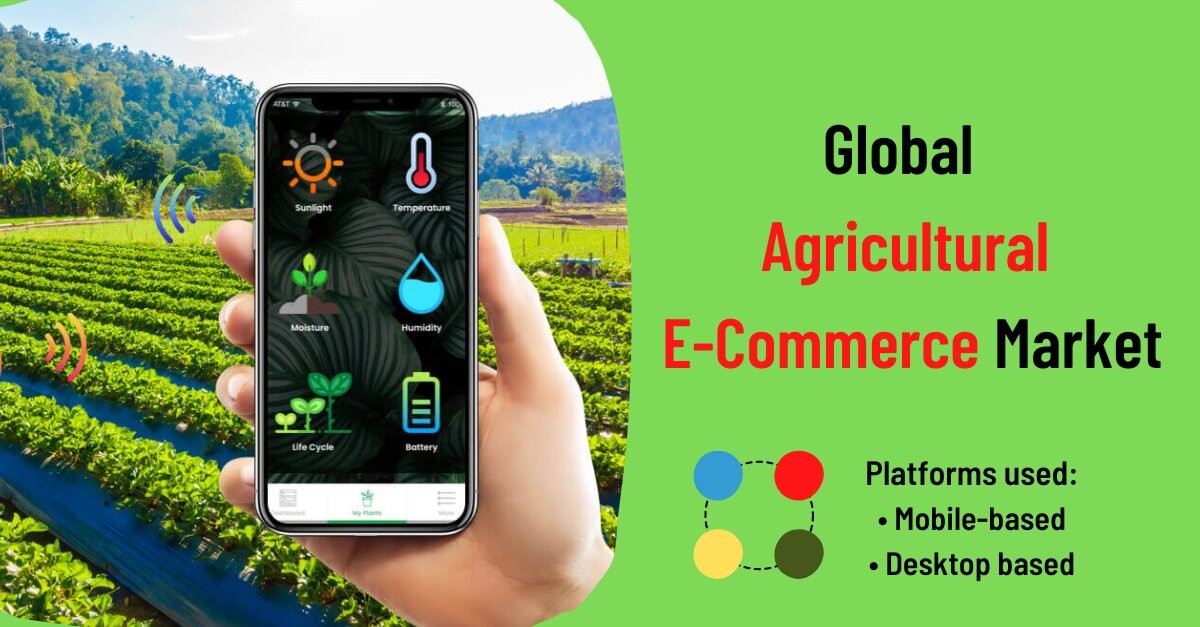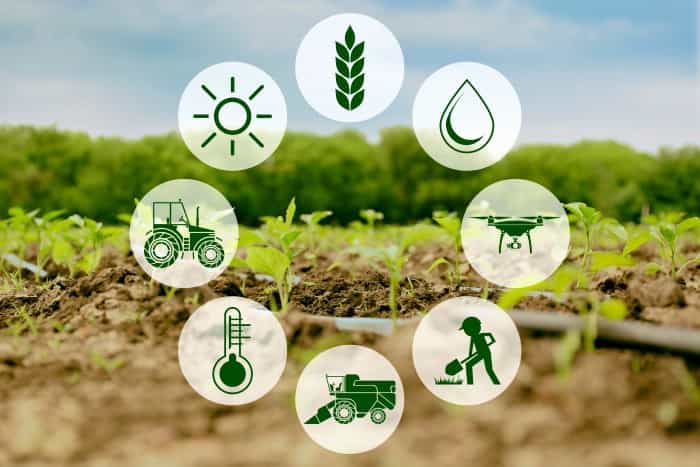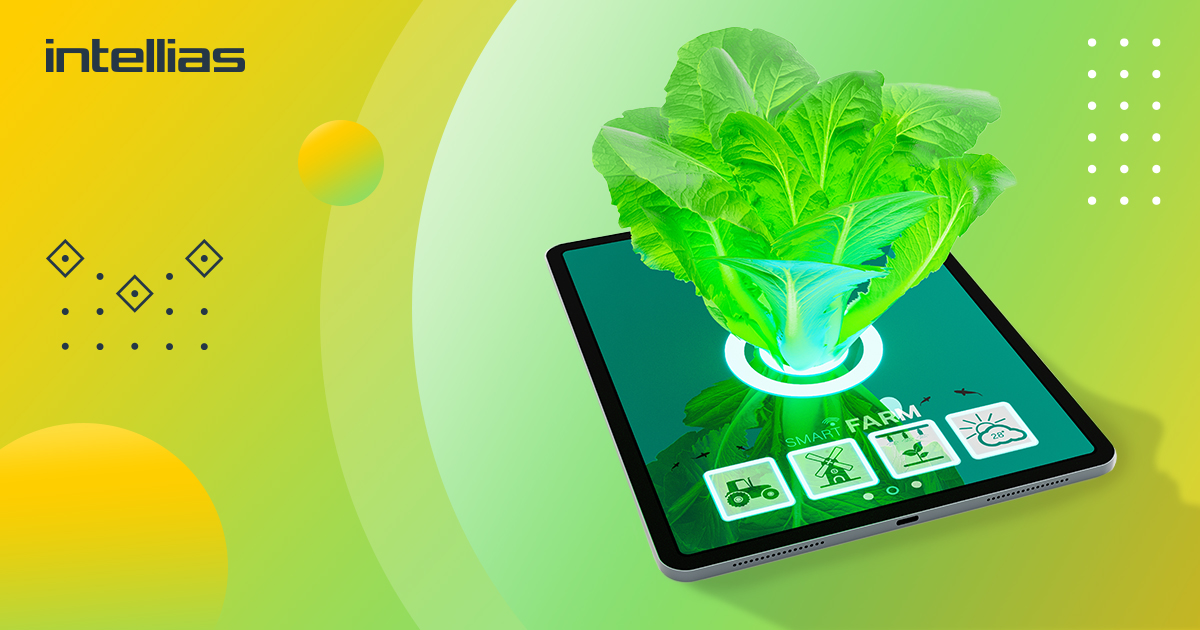Agricultural Marketing: Cultivating Success In The Modern Market
Drafted by: vijaychourey26@gmail.com
In today's rapidly evolving world, the agricultural industry is not just about cultivating crops; it's also about cultivating success in the market. Agricultural marketing plays a pivotal role in bridging the gap between producers and consumers, ensuring a seamless flow of goods while maximizing profitability for all stakeholders involved. In this article, we will delve into the realm of agricultural marketing, uncovering its significance, strategies, challenges, and its transformative impact on the agricultural landscape.
Understanding Agricultural Marketing
Defining Agricultural Marketing
Agricultural marketing encompasses the planning, production, promotion, and distribution of agricultural products. It involves creating a connection between farmers and consumers, ensuring that the right products reach the right markets at the right time.
Importance of Agricultural Marketing
Effective marketing strategies help farmers attain better prices for their products and, consequently, a higher standard of living. It facilitates the movement of surplus produce, reduces wastage, and stimulates increased agricultural production.
Government Initiatives and Support
Governments around the world are recognizing the importance of agriculture and are implementing initiatives to support farmers. These may include subsidies, training programs, and investments in agricultural infrastructure.
Key Components Of Agricultural Marketing
Product Development and Differentiation
In a competitive market, product development and differentiation are crucial. By adding value to their products through processes like organic farming or unique packaging, farmers can stand out and command premium prices.
Pricing Strategies for Agricultural Products
Determining the appropriate price is a delicate balance. Factors like production costs, market demand, and competition play a significant role in setting prices that are attractive to consumers yet profitable for producers.
Distribution Channels and Logistics
Efficient distribution networks ensure that agricultural products reach consumers in a timely manner. From traditional supply chains to emerging e-commerce platforms, the choice of distribution channels greatly influences market reach.
Promotional Techniques for Agriculture
Promotion is essential for creating awareness about agricultural products. Utilizing tactics like advertising, farmer's markets, and collaborations with restaurants can help in building a loyal consumer base.
Strategies For Effective Agricultural Marketing
Understanding Target Audience
To succeed in agricultural marketing, it's crucial to understand the preferences and needs of your target audience. Different segments of consumers have varying demands, and tailoring your products to meet these demands can significantly boost sales.
Building a Strong Brand
A strong brand identity sets your agricultural business apart from the competition. A well-crafted brand communicates your values, quality, and the unique aspects of your products. It creates a sense of trust and familiarity among consumers.
Leveraging Digital Marketing
In today's digital age, online presence is paramount. Utilizing social media platforms, creating informative websites, and employing digital advertising can expand your reach and attract a wider customer base.
Utilizing Local Markets
While digital marketing is important, don't underestimate the power of local markets. Selling products at farmers' markets or through community-supported agriculture (CSA) programs can foster a sense of community and support local economies.
Digitalization In Agricultural Marketing
The Role of E-Commerce in Agriculture
The digital era has brought forth online marketplaces that connect farmers directly with consumers. E-commerce platforms provide a convenient way to purchase fresh produce while supporting local agriculture.
Leveraging Social Media for Agribusiness
Social media platforms offer a space for farmers to share their stories, practices, and products. This direct engagement humanizes the farming process and fosters trust among consumers.
Challenges In Agricultural Marketing
Seasonal Fluctuations and Demand Variability
Agricultural products often face demand fluctuations due to seasonality. Managing this variability while maintaining a consistent supply requires careful planning and diversification.
Access to Modern Distribution Networks
In remote areas, accessing modern distribution networks can be challenging. This can lead to limited market access and reduced opportunities for farmers to earn a fair income.
Sustainable Marketing Practices
Consumers are increasingly concerned about the environmental impact of their choices. Adopting sustainable practices not only addresses these concerns but also provides a unique selling proposition for agricultural products.
Supply Chain Issues
The complex agricultural supply chain can lead to bottlenecks and delays. Coordinating activities from production to distribution requires efficient management to ensure fresh products reach consumers.
Global Trends In Agricultural Marketing
Organic and Locally Sourced Produce
The demand for organic and locally sourced produce is on the rise. Consumers are willing to pay a premium for products that are healthier and have a smaller carbon footprint.
Technological Integration in Farming
From precision agriculture to automated machinery, technology is revolutionizing farming. Agricultural marketing can leverage these innovations to create efficiency throughout the supply chain.
Rising Importance of Food Security
Global uncertainties have highlighted the need for food security. Agricultural marketing strategies are shifting to prioritize local food production and distribution to ensure a stable food supply.
Innovative Approaches To Agricultural Marketing
Farmer's Markets and Community-Supported Agriculture (CSA)
Farmer's markets and CSA programs provide a direct connection between farmers and consumers. They offer fresh produce and an opportunity for consumers to support local agriculture.
Direct-to-Consumer (DTC) Models
DTC models enable farmers to sell their products directly to consumers through online platforms or subscription services. This eliminates intermediaries and allows for better profit margins.
E-commerce Platforms
Online platforms provide a convenient way for farmers to showcase and sell their products to a wider audience. E-commerce eliminates geographical barriers and offers consumers the convenience of shopping from home.
Sustainable Practices
Consumers are increasingly conscious of sustainability. Agricultural businesses embracing eco-friendly practices not only contribute to a healthier planet but also attract environmentally conscious consumers.
The Future Of Agricultural Marketing
Predictive Analytics in Agriculture
Predictive analytics can anticipate market demand and supply trends, enabling farmers to make informed planting and harvesting decisions. This data-driven approach optimizes production and reduces waste.
Climate-Responsive Marketing Strategies
With changing climate patterns, marketing strategies must adapt. Highlighting climate-resilient practices and products can resonate with consumers who are conscious of environmental issues.
